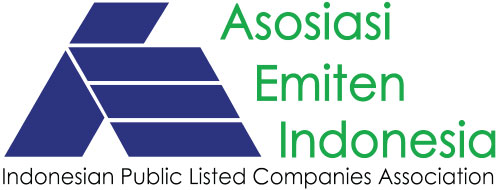
The Future of Digitalization of MSMEs and the Internet Industry in Indonesia
In the digital era that continues to develop, digital transformation for MSMEs and cooperatives is a strategic step that must be prioritized. Currently, there are still many business people who rely on manual systems to run their business. In fact, digitalization provides great opportunities for MSMEs to expand markets, increase efficiency and compete globally.
One of the main challenges in digitalizing MSMEs is infrastructure and internet quality in Indonesia. Currently, the average internet speed is still around 25 Mbps. Therefore, it is hoped that in the next five years, internet speeds will reach at least 100 Mbps so that the digital industry can develop more optimally. Apart from that, another target is to increase internet user penetration to 90% of the total population, so that digital access can be enjoyed by more people, including MSMEs in remote areas.
Collaboration of Internet Service Providers (ISP) and Digital Ecosystem
The role of internet service providers or Internet Service Providers (ISP) in the digital ecosystem is increasingly crucial. Currently, one of the challenges facing the industry is the relationship between internet service providers and Over The Top (OTT) service providers. OTT, like streaming platforms and digital applications, uses internet network infrastructure without making a direct contribution to network operational costs.
As a solution, closer collaboration is needed between ISPs and OTT providers so that the business model implemented can be fairer for all parties. With a revenue sharing system, ISPs can benefit from the data traffic generated by OTT services, while improving the quality of service for end users. This can also contribute to Non-Tax State Revenue (PNBP), which ultimately benefits the state.
In addition, internet service providers are also starting to develop additional solutions beyond just providing networks. Several ISPs are now collaborating with cloud, Internet of Things (IoT), and smart home service providers to provide added value for customers. Thus, the internet industry not only competes in terms of price, but also in terms of service and technological innovation.
MSME Digitalization Support
MSMEs are the backbone of the Indonesian economy, with a number of more than 64 million business units. Unfortunately, there are still many MSMEs that do not have adequate digital access. For this reason, various programs have been initiated by the government, one of which is encouraging two million MSMEs to go digital.
Support for MSMEs does not just stop at internet access, but also includes digital training, e-commerce assistance, and access to digital payments. With increasing technology adoption, MSMEs are expected to be able to reach a wider market, even overseas.
One of the challenges that must be overcome is digital literacy for MSME players. Many of them still have difficulty understanding how to market products online, use digital platforms, and manage finances digitally. Therefore, collaboration between the government, industry associations and technology companies is very necessary to provide education and assistance to small business actors.
Target for the Next 5 Years: 2030 as a Digitalization Milestone
The Indonesian Internet Service Providers Association (APJII) is targeting 2030 as a major milestone for the development of the internet industry in Indonesia. Some of the main targets to be achieved in the next five years include:
- Equal distribution of internet access up to 90% of Indonesia's population, including remote areas.
- Improved internet quality with a target speed of at least 100 Mbps.
- Encourage collaboration between ISP and OTT so that there is a fairer business model.
- Increasing the competitiveness of the ISP industry with the development of additional services such as cloud computing, IoT, and other digital solutions.
- Ensuring national digital sovereignty, where digital infrastructure is still managed by domestic companies so as not to depend on foreign parties.
Conclusion
The digitalization of MSMEs and the development of the internet industry is an important part of the growth of the digital economy in Indonesia. With better infrastructure, closer collaboration between ISPs and the digital ecosystem, as well as support from the government and the private sector, it is hoped that Indonesia can achieve its targets more quickly, without having to wait until 2045.
In the future, more attention to digital regulations and policies also needs to be strengthened so that this industry not only develops, but also provides maximum benefits for the national economy. With the right strategic steps, the internet will not only become a communication tool, but also the main driver in creating broader economic opportunities for the Indonesian people.
Full Podcast Video: APJII: INNOVATION AND THE FUTURE OF THE INTERNET
-
Digital Transformation in Indonesia: APJII's Role in the Internet Ecosystem
-
Internet Technology Innovation: APJII’s Strategic Steps for the Future
-
Internet Security and Infrastructure: Challenges and Solutions from APJII
-
Internet Access for All: APJII and Digital Equity Initiatives
-
Internet Regulations and Policies in Indonesia: APJII’s Perspective




 Back to Home
Back to Home







